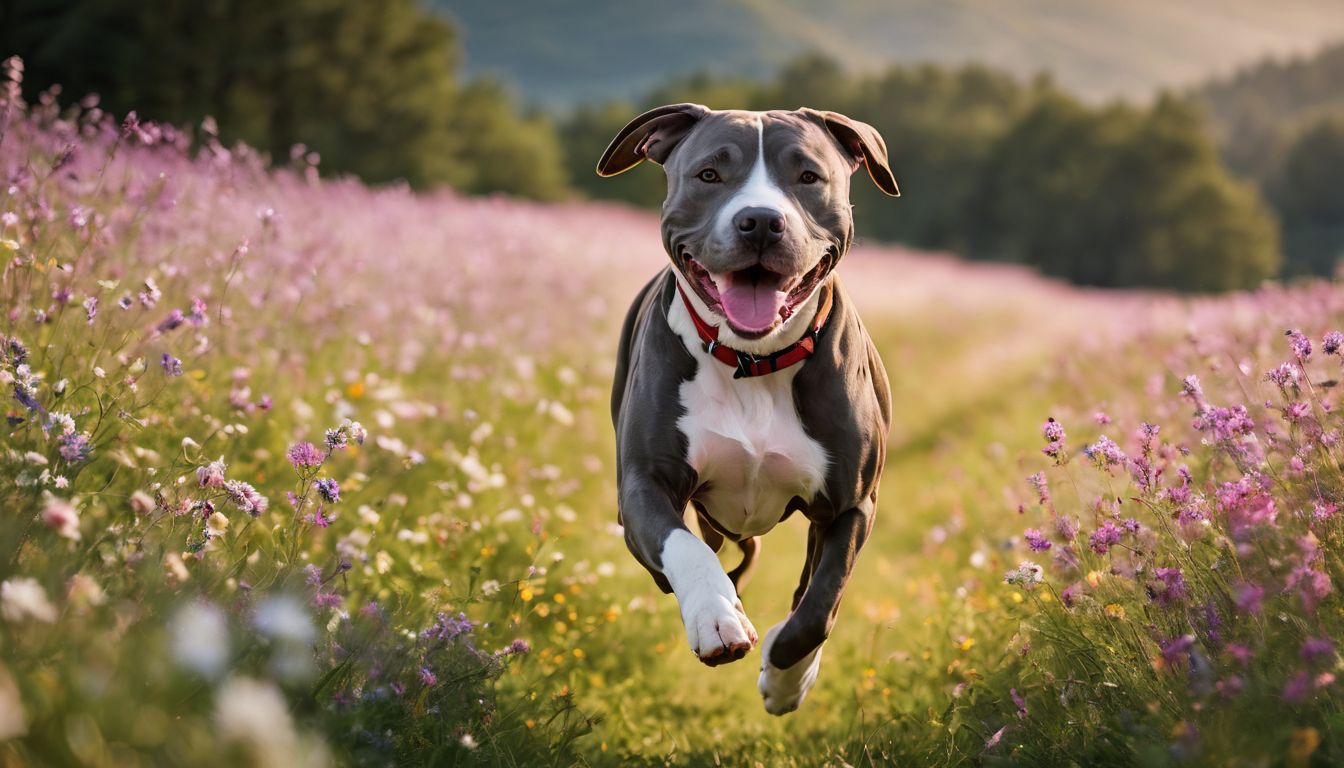Curious about how long to pitbulls live? Did you know that the average lifespan of a pitbull ranges from 8 to 15 years, with exceptional care, love and attention? This article lays out important information on Pitbull lifespan, factors affecting it and tips to help them live their best life.
Keep reading for all the insights into your pet’s golden years ahead!
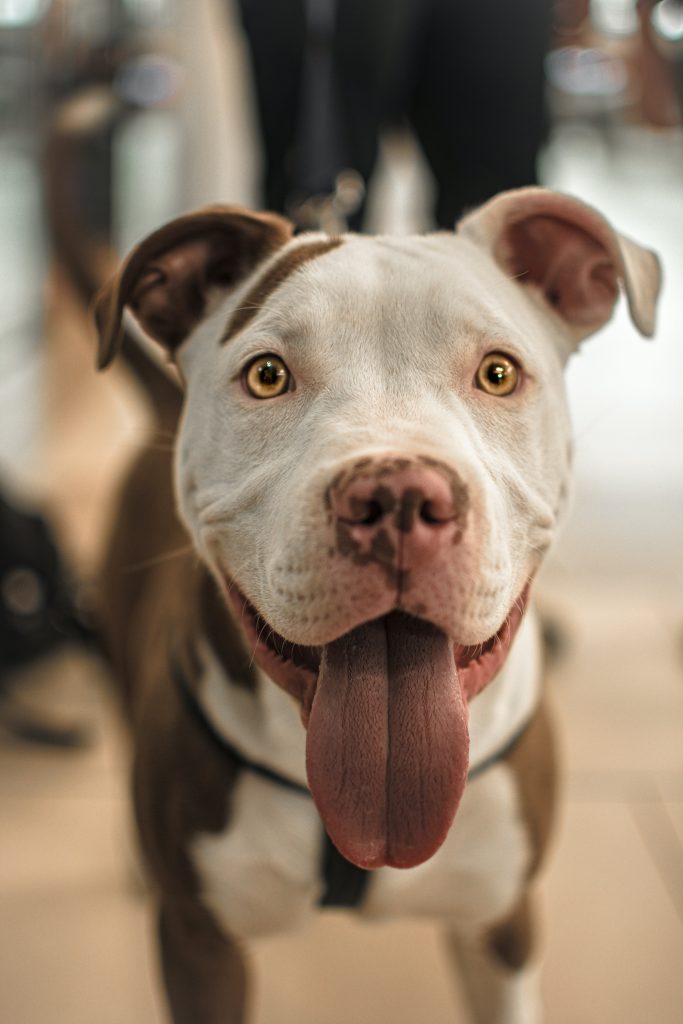
Key Takeaways
- Pitbulls have an average lifespan of 8 to 15 years, but with exceptional care and attention, they can live even longer.
- Factors that impact a pitbull’s lifespan include health issues, genetics, spaying/neutering, nutrition, and overall care.
- Health problems like obesity, dental disease, cancer, accidents/injuries, heart disease, kidney disease, and thyroid malfunction can shorten a pitbull’s life if not addressed properly.
- Genetics play a role in a pitbull’s lifespan. Different breeds have different genetic backgrounds that can affect their health and longevity.
- Spaying or neutering your pitbull helps prevent certain health problems and behavioral issues while increasing their overall wellness.
- Providing proper nutrition through balanced meals tailored to their needs is crucial for ensuring the long-term health of your pitbull.
- Regular exercise keeps your pitbull physically fit and mentally stimulated. Aim for at least 30 minutes to an hour of exercise every day.
- Showing love and care by spending quality time together and providing regular grooming helps promote the well-being of your pitbull.
- Regular vet check – ups are essential for preventive care and early detection of any potential health issues.
Pitbull Lifespan by Breed
Different breeds of pitbulls have varying average lifespans.
Different breeds of pitbulls and their average lifespan
There are many breeds of pitbulls. Each breed can live for a different number of years. The American Pit Bull Terrier often lives between 8 and 15 years. Most pitbulls live for about 10-14 years on average.
Some can even live up to 16 years! Staffordshire bull terriers, another type of Pit Bull, also live from 8 to 15 years like the others. These dogs start becoming old when they are around eight or nine years old.
With good care and healthy food, these happy pets can bring joy for many long years.
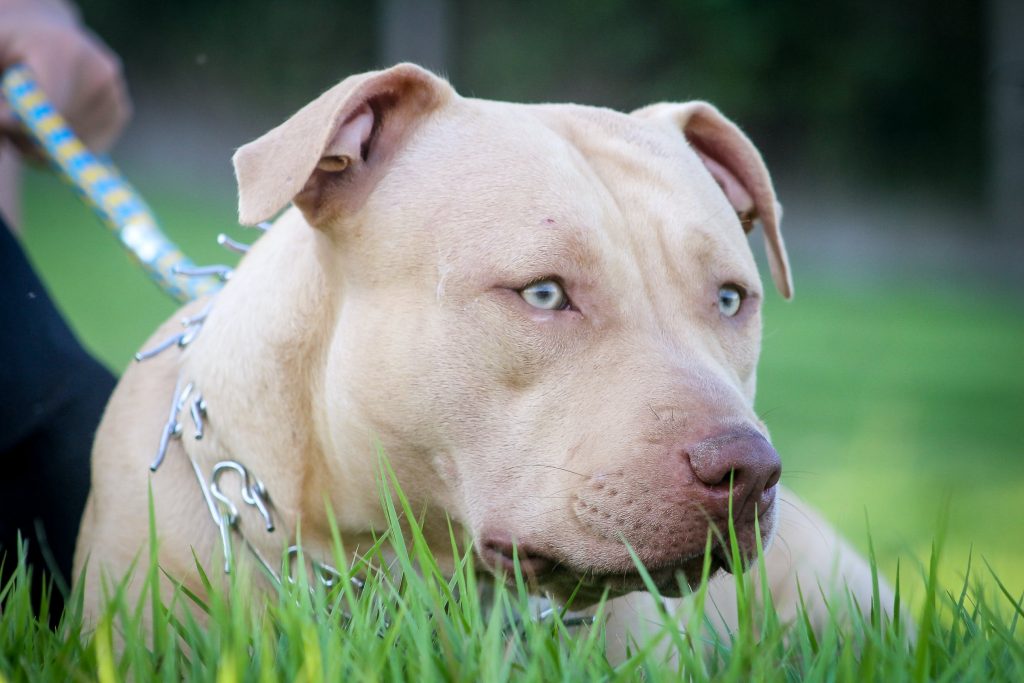
Factors That Impact Pitbull Lifespan
Certain factors can significantly impact the lifespan of pitbulls, including health issues, genetics, spaying/neutering, nutrition, and care. Want to learn more about how these factors affect your furry friend’s longevity? Keep reading!
Health issues such as obesity, dental disease, cancer, accidents/injuries, heart disease, kidney disease, and thyroid malfunction
Health issues can affect the lifespan of Pitbulls. Obesity, dental disease, cancer, accidents/injuries, heart disease, kidney disease, and thyroid malfunction are some common health problems to watch out for.
These conditions can shorten a Pitbull’s life if not properly addressed. Regular vet check-ups and proper nutrition can help prevent these health issues and ensure a longer lifespan for your furry friend.
Genetics
Genetics also play a role in the lifespan of pitbulls. Different breeds have their own specific genetics and can vary in terms of health issues and life expectancy. Some pitbulls may inherit certain conditions that can shorten their lifespan, while others may be more resilient.
It’s important to consider the breeding history and choose a puppy from a registered breeder who prioritizes the health of their dogs. By understanding your pitbull’s genetic background, you can take steps to provide proper care and support for their overall wellbeing throughout their years.
Spaying and neutering
Spaying and neutering is an important factor that can impact the lifespan of your Pitbull. Getting your dog spayed (if she’s female) or neutered (if he’s male) can help prevent certain health problems and increase their overall wellness.
Spaying females helps prevent uterine infections and breast tumors, while neutering males reduces the risk of testicular cancer and prostate problems. It can also minimize behavioral issues like aggression or roaming tendencies.
So, talk to your vet about getting your Pitbull spayed or neutered to ensure a healthier and longer life for them.
Nutrition
Proper nutrition is crucial for ensuring the health and longevity of your Pitbull. Feeding them a high-quality diet that meets their nutritional needs can help prevent health issues and increase their lifespan.
Make sure to provide them with balanced meals that include lean protein, carbohydrates, healthy fats, and essential vitamins and minerals. Avoid feeding them too many treats or table scraps, as this can lead to obesity and other health problems.
Regularly consult with your veterinarian to determine the best diet plan for your Pitbull based on their age, weight, activity level, and any specific dietary requirements they may have.
Care and lifestyle
To ensure your Pitbull lives a long and healthy life, there are some important care and lifestyle considerations to keep in mind. First, regular vet visits are crucial for preventive care and early detection of any health issues.
Proper nutrition is also key – feeding your Pitbull high-quality food that meets their specific dietary needs can greatly impact their overall health and lifespan. Regular exercise is essential to keep them physically fit and mentally stimulated.
Lastly, showing love and care through daily interaction, playtime, grooming, and providing a safe environment will contribute to their happiness and well-being. Remembering these factors will help ensure your Pitbull lives a long, happy life by your side without unnecessary health concerns or complications.
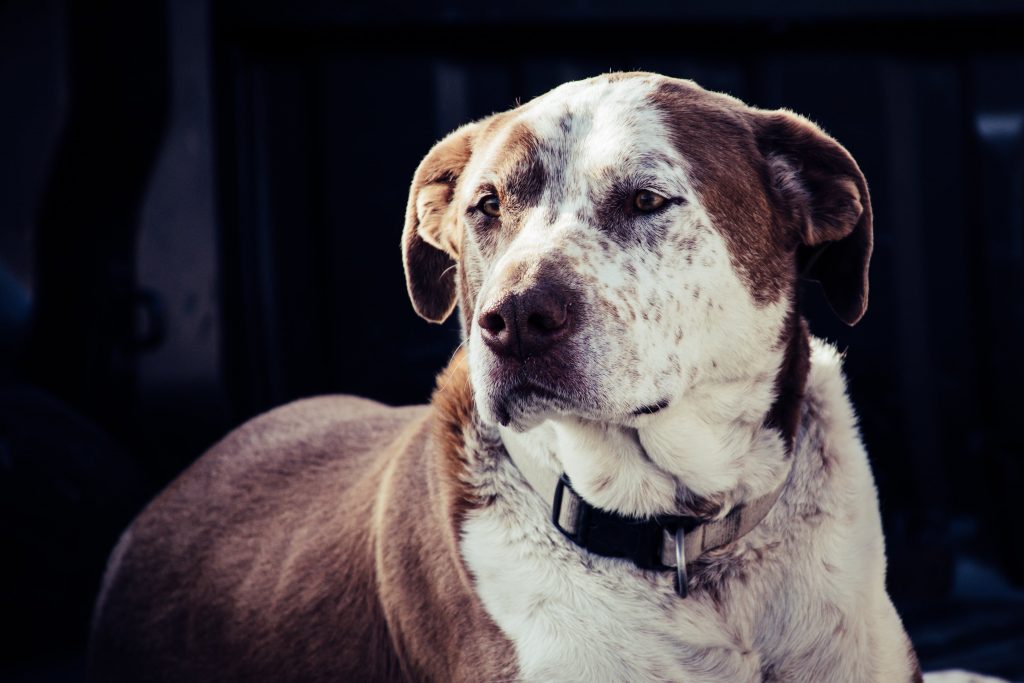
How to Help Your Pitbull Live a Long Life
Ensure your pitbull lives a long and healthy life by providing regular vet visits, proper nutrition, exercise, and lots of love and care. Click here to discover more ways to extend your furry friend’s lifespan.
Regular vet visits
Regular vet visits are crucial for ensuring the health and well-being of your pitbull. It is recommended to take your pitbull to the vet at least once a year for a check-up. During these visits, the vet will examine your dog’s overall health, conduct necessary vaccinations, and check for any potential health issues or concerns.
Regular vet visits can help detect any problems early on and prevent them from becoming serious. By keeping up with these visits, you can help ensure that your pitbull lives a long and healthy life.
Proper nutrition
Proper nutrition is key to helping your Pitbull live a long and healthy life. Feeding them high-quality dog food that contains all the necessary nutrients is important. A balanced diet with protein, carbohydrates, fats, vitamins, and minerals will support their overall health and well-being.
Make sure to choose a dog food that is specifically formulated for Pitbulls or large breed dogs.
Avoid overfeeding your Pitbull as obesity can lead to various health issues and shorten their lifespan. Follow the recommended feeding guidelines provided by the dog food manufacturer based on your Pitbull’s age, size, and activity level.
Regularly monitor their weight and consult with your vet if you need guidance on portion control.
In addition to proper nutrition from commercial dog food, you can also include some fresh fruits and vegetables in small amounts as treats or added toppings to their meals. However, avoid feeding them foods that are toxic to dogs such as chocolate, grapes/raisins, onions/garlic, avocados, or anything containing xylitol.
Exercise
Regular exercise is essential for keeping your pitbull happy and healthy. Aim for at least 30 minutes to an hour of exercise every day to keep them active and prevent obesity. This can include walks, runs, playtime at the park, or even engaging in fun activities like agility training.
Exercise helps maintain their weight, build muscle strength, improve cardiovascular health, and provide mental stimulation. Remember to tailor the intensity and duration of exercise based on your dog’s age and fitness level.
By incorporating regular exercise into their routine, you can ensure that your pitbull stays fit and enjoys a long and fulfilling life by your side.
Showing love and care
Showing love and care to your Pitbull is essential for their overall well-being and can contribute to a longer lifespan. Spend quality time with them, showering them with affection and attention.
Regularly groom them, ensuring they are clean and comfortable. Provide a balanced diet with high-quality nutrition to keep them healthy. Make sure they get plenty of exercise to maintain a healthy weight and stimulate their minds.
Take them for regular vet check-ups to catch any health issues early on. By showing love and care consistently, you can help your Pitbull live a happy and long life.
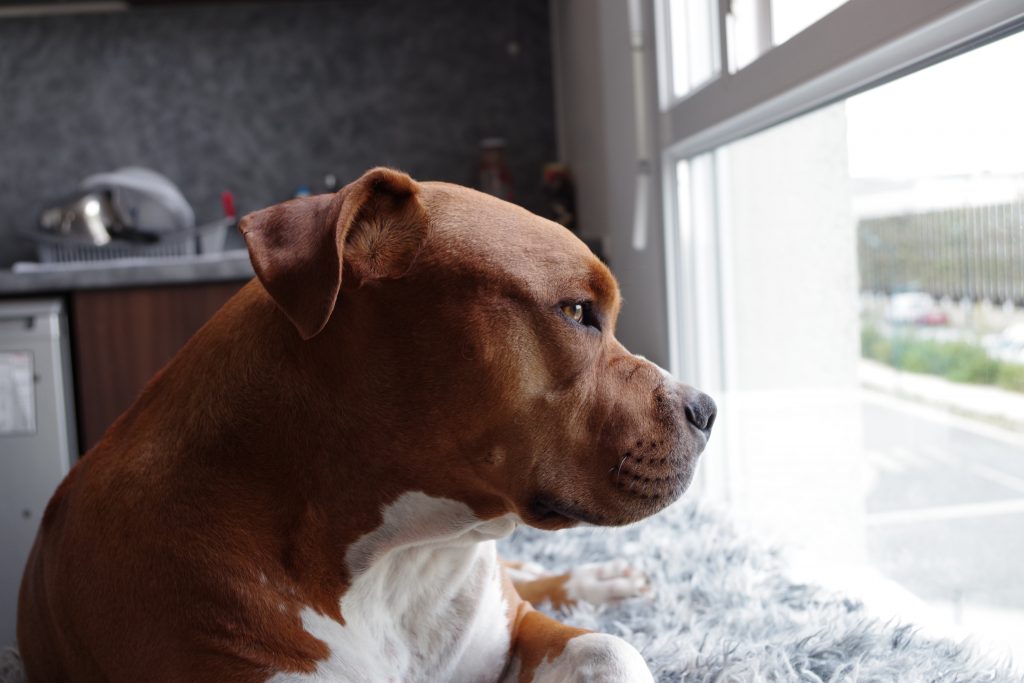
Conclusion
In conclusion, understanding the lifespan of pitbulls is essential for providing them with proper care and ensuring they live long, healthy lives. Factors such as genetics, nutrition, veterinary care, and exercise all play a role in determining a pitbull’s lifespan.
By taking proactive steps to address these factors, you can increase your pitbull’s chances of living a happy and fulfilling life by your side. So be sure to prioritize their health and well-being to enjoy many years together.
FAQs
1. What is the average life expectancy of pit bulls?
The average life expectancy of pitbulls ranges from 12 to 14 years, making it a breed with a long canine lifespan.
2. What factors affect a pit bull’s lifespan?
Factors affecting the Pitbull lifespan include their acquired health, high-quality nutrition, and their care as they move into senior years.
3. How can I extend my pit bull’s lifespan?
To extend the lifespan of your Pitbull, provide them with top-notch care including regular exercise, nutritious food, routine vet checks and much love!
4. Does every Pitbull breed have the same lifespan range?
Not all Pitt Bulls are alike! The Pitbull breed lifespan varies depending on genetics and environmental factors leading to differences in canine longevity.
5. Why does dog aging affect my pit bull’s health?
As your Pit Bull ages, there may be changes in its health status due to natural aging process which may need special considerations for maintaining good health and longevity.


